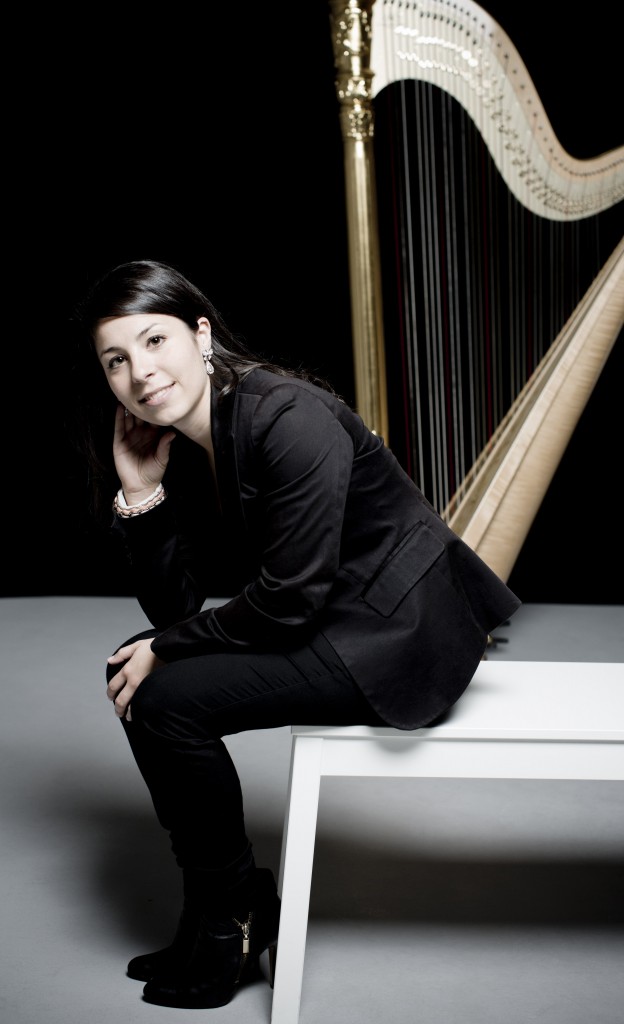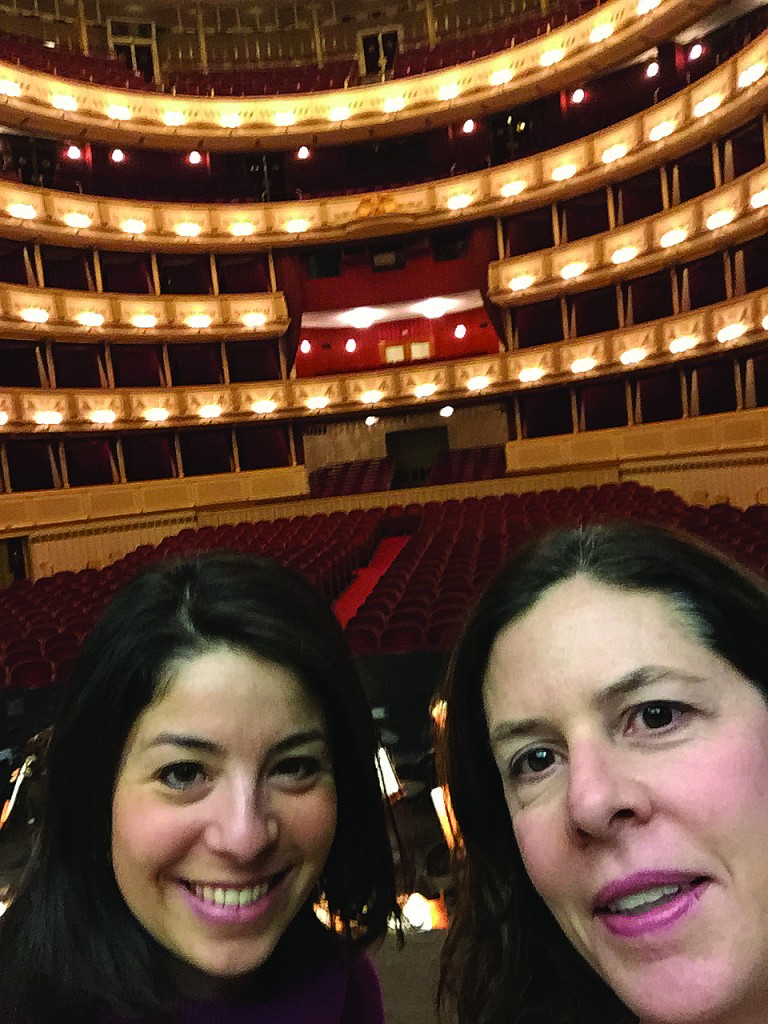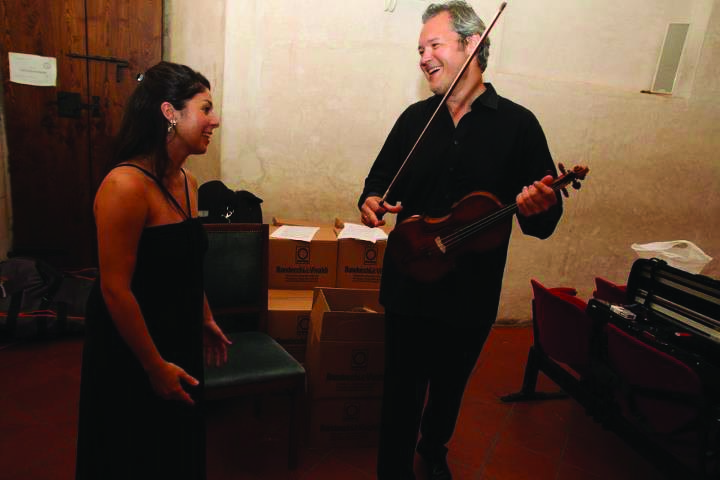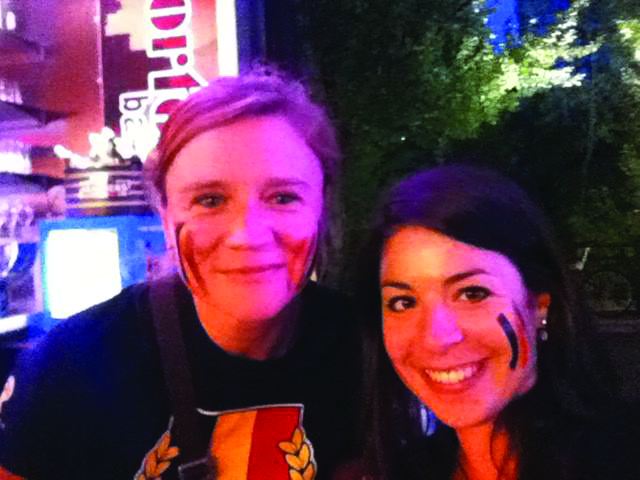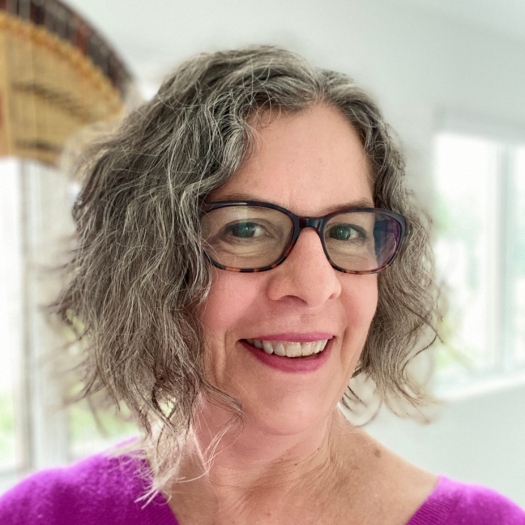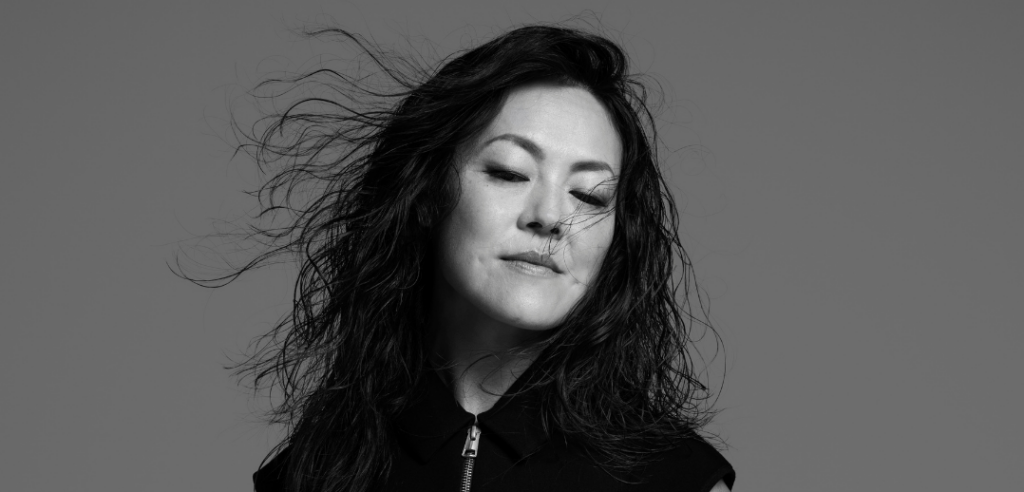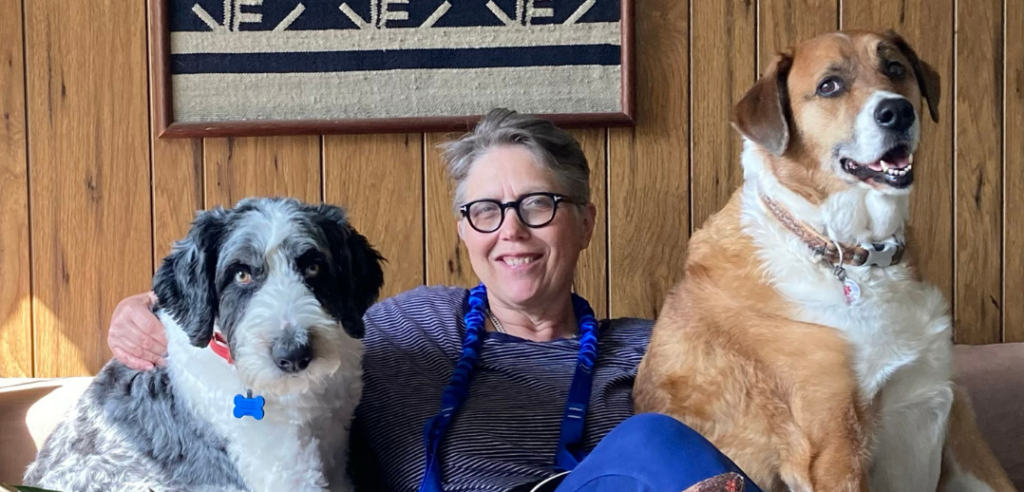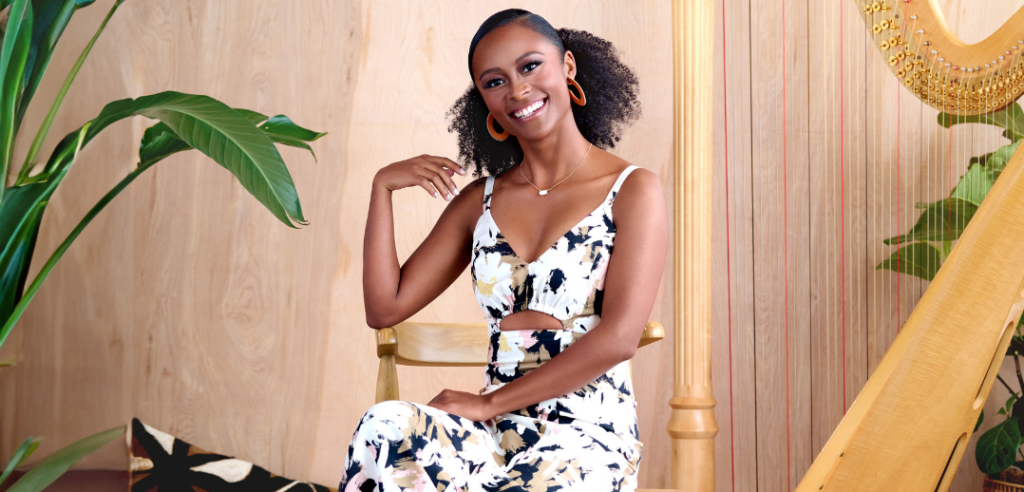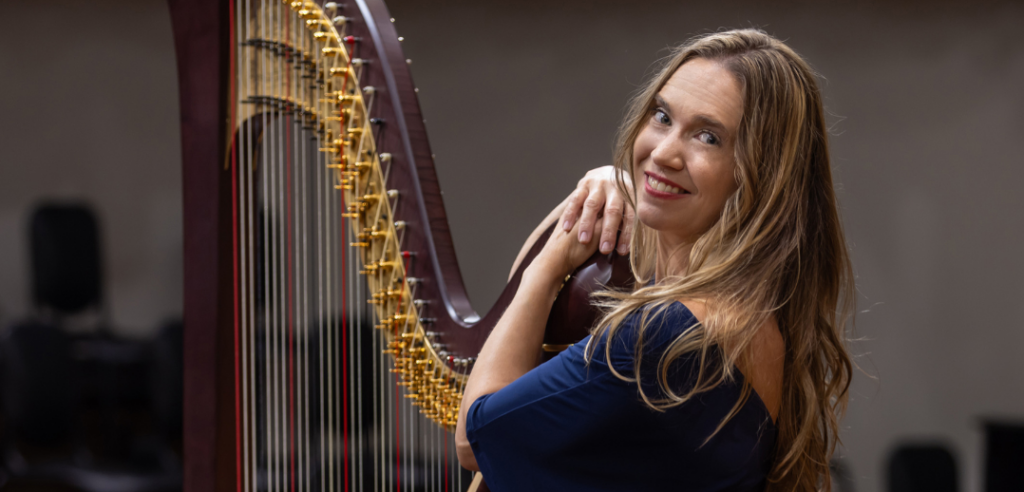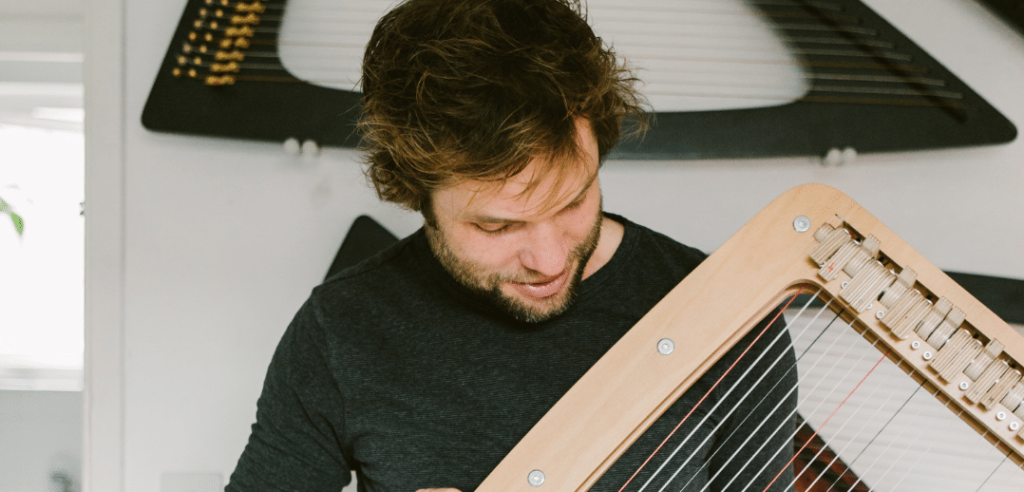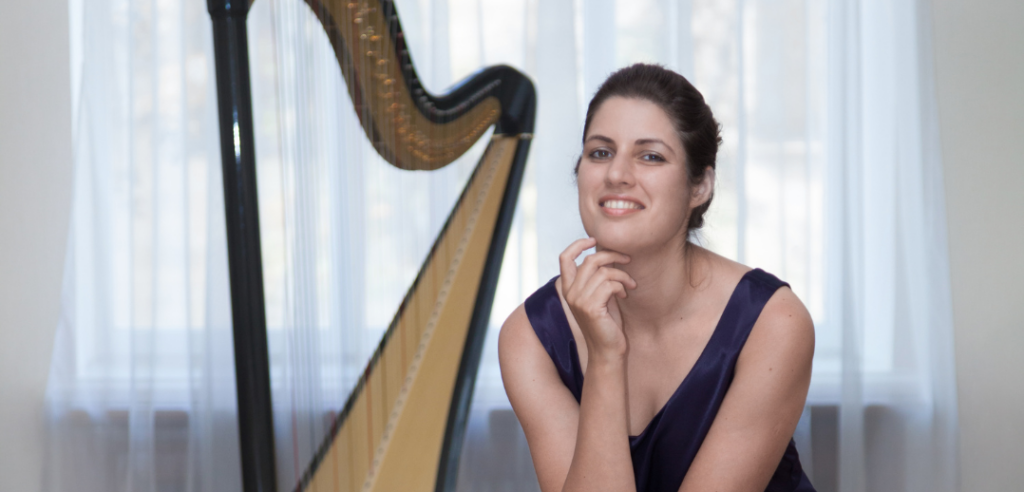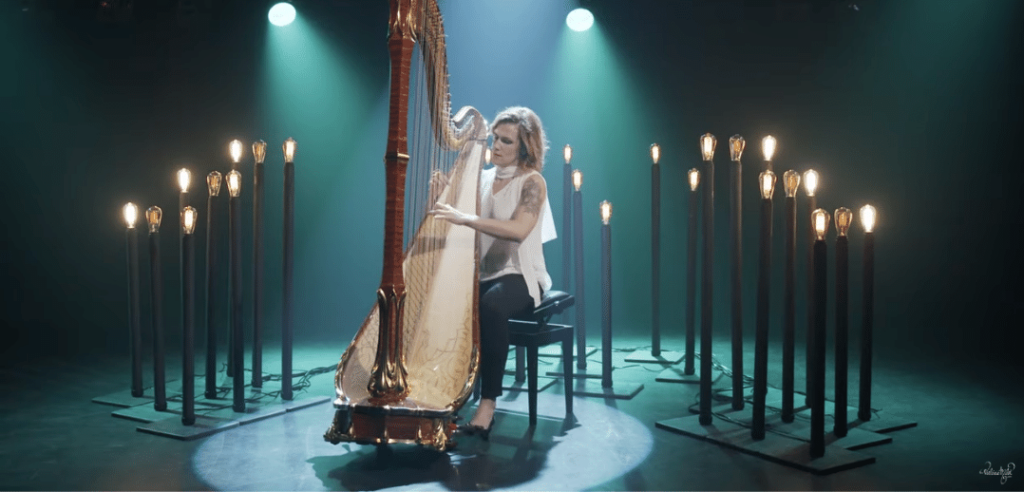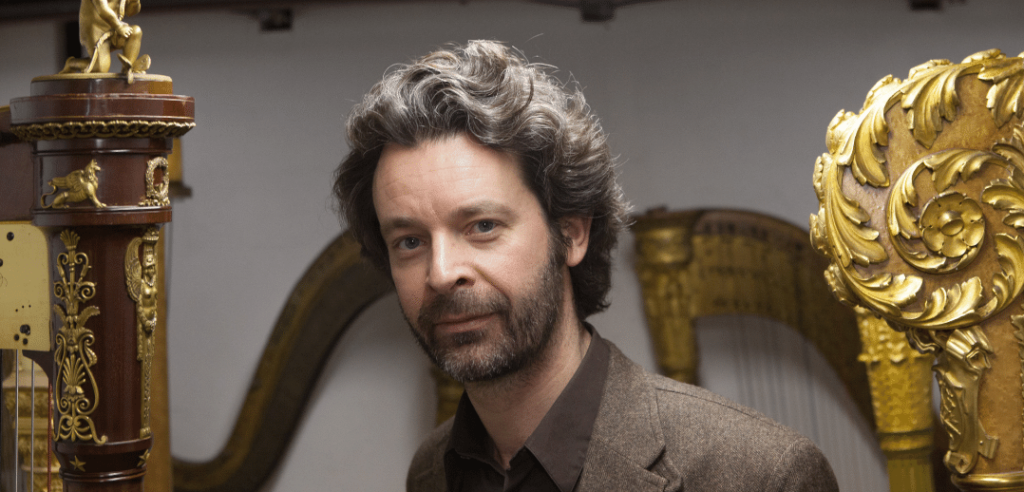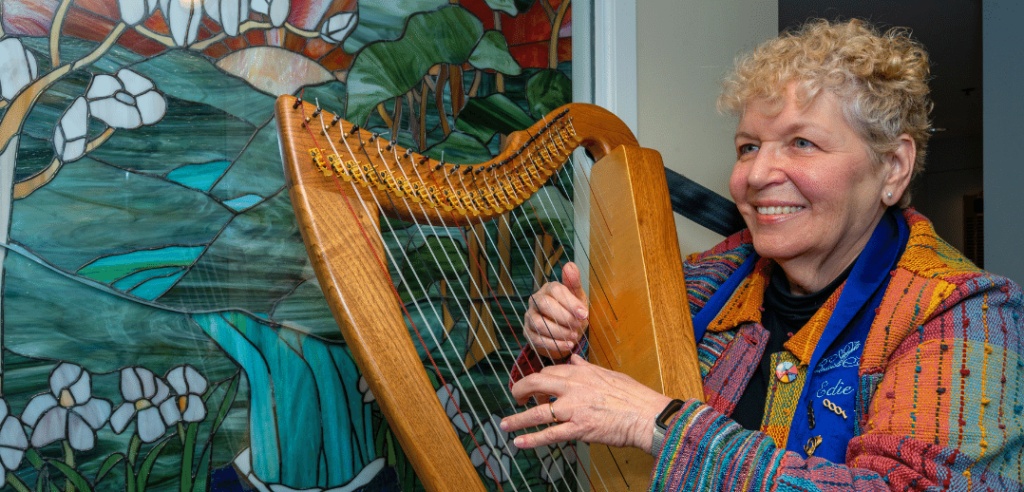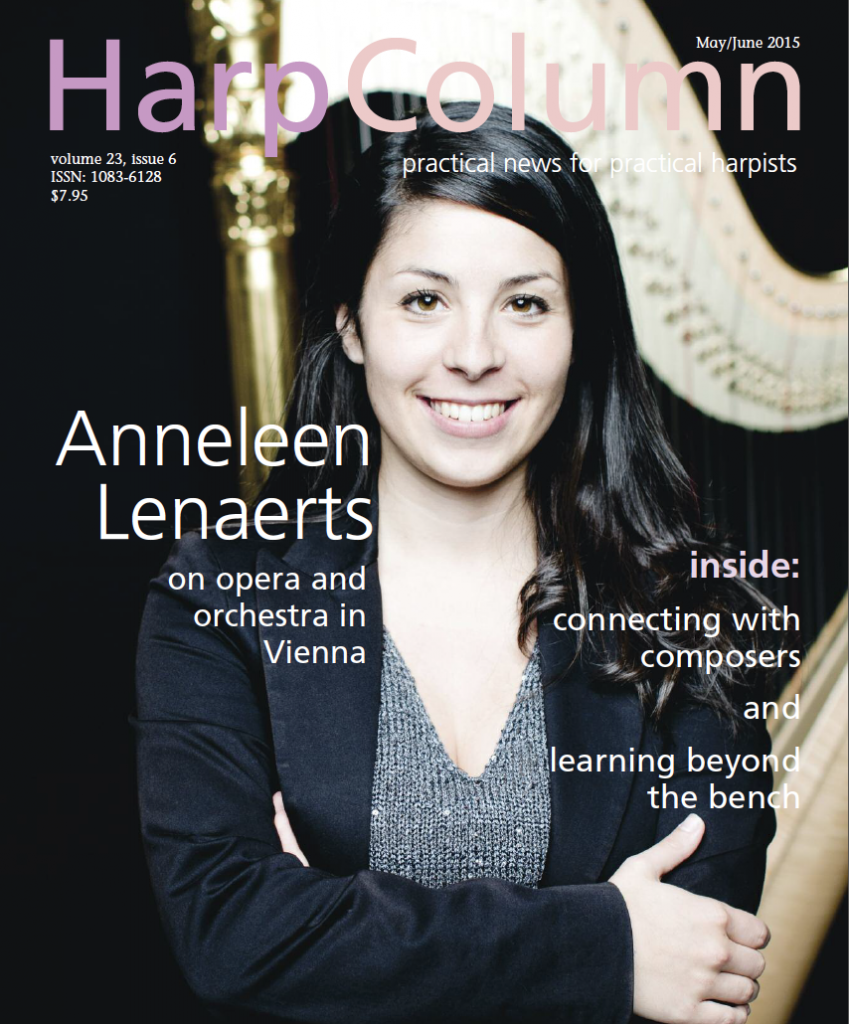I met Anneleen Lenaerts on a snowy morning in Vienna. I was lucky our schedules meshed so that we could meet in person, especially after hearing about her demanding job performing nearly every night of the year as principal harpist with the Vienna Philharmonic and Vienna State Opera. I think my jaw nearly dropped to the floor when she told me she had learned 45 new operas in her first season alone—all performed without rehearsal! That, combined with her full-time schedule playing with the philharmonic, makes it hard to fathom how she also recently found the time to record a new CD of harp concertos with the Brussels Philharmonic in her native Belgium. Despite a high-profile career befitting a diva, Anneleen is truly one of the nicest harpists I’ve ever had the pleasure to meet. After our conversation and a quick tour the renowned opera theater, we still had time for a lunch of wiener schnitzel before Anneleen rushed off to take care of other business. Read on for a behind-the-scenes look into the life of what can only be described as the world’s busiest harpist.
Harp Column: Can you tell us just a little bit about your job in this amazing building and when you began here?
Anneleen Lenaerts: I started almost four years ago here in Vienna. The special thing here about this orchestra is that we don’t only play opera, but also orchestra. So it’s actually two orchestras—separate, independent organizations—but the same musicians, which makes it like a double agenda. We have opera every night, every night a different one, so it’s like a repertoire orchestra. It was very difficult in the beginning because I had never played opera, plus they don’t rehearse for it, so my first season I learned 45 operas without rehearsal. It was scary and a lot of preparation alone at home listening to recordings and then hoping that at night it goes well when you see the conductor for the first time. It’s hard, but at the same time you learn repertoire very quickly.
HC: So you play with the opera and the philharmonic, and the opera schedule is every single night?
AL: Yes, well, of course, depending on if there is harp or not, so sometimes we are lucky and don’t have rehearsal. [Laughs]
HC: Then what is the philharmonic schedule like?
AL: Well, that depends. They have a project every week. So we rehearse like two days, and then we have concerts. But, of course, it always depends if there’s harp. It’s never fixed, so it depends on the conductor if it’s a tour with harp or without. But even if we are on tour, the opera still continues here, so we have a very large orchestra—160 members. All solo positions are occupied by three people. The harp third position was cancelled many years ago because at the time they were so bad that they didn’t want to have three harps! [Laughs] So now we need actually a third one, but we manage. We have a third stage harpist.
HC: So you do have a second harpist then?
AL: Yes, it’s necessary. It’s Charlotte Balzereit.
HC: All right. Great! So then tell me, can you describe what a typical day for you is like?
AL: Well that’s difficult because there’s no typical day in Vienna. [Laughs]
HC: Well, tell me your busiest day.
AL: Well, the busiest day is when the philharmonic and opera are combined in one week because then you have morning and afternoon rehearsals but then also service in the night in the opera. So that’s the busiest actually.
HC: So on days when the philharmonic and the opera are playing at the same time, does Charlotte do one and you do the other?
AL: Yes, exactly. What makes this orchestra quite unique is that they decide everything democratically. We don’t have a chief either in the opera or in the philharmonic; everything is decided by the musicians. Our planning is also completely up to us, which is great. It’s a lot of work, but it makes us flexible. In fact, if I can’t be there one week because I have something, I can speak with Charlotte, and the opposite if she wants to leave for some reason. So we are totally free to plan our schedules, and the inspector is just there to check that we really play enough like we should, but basically it’s free. So that makes it great, actually.
HC: Wow, that’s fabulous. So you auditioned four years ago?
AL: In December 2010, but I actually started September 2011.
HC: And can you tell us a little bit about the audition? What was it like?
AL: I’m not sure actually how many people there were, but I had to do a pre-audition before getting to the main audition. It was exciting in a way, but I remember it was a period that I had so many other things to do. I recorded the Chopin and Liszt CD right before I played in Munich and I just had two weeks to prepare. I didn’t really expect something from it, and I said I could just go and have nothing to lose. It’s behind the screen, so they don’t know who you are, even if you mess up. [Laughs]
HC: So how did you feel?
AL: I felt relaxed. I didn’t really honestly think about it. Of course, when you go you just hope it goes well, but I never expected that I’d get it. I think this was a plus for me because I wasn’t under pressure. I really wanted it so badly, of course it would be fantastic, but I wasn’t so focused on it.
HC: Do you remember what was on the list?
AL: For solo pieces we could choose between the the Britten Suite and the Hindemith [Sonate], and then Tannhäuser and Lucia [di Lammermoor], all the main things of orchestra, Symphonie Fantastique…
HC: So have you been required to play Lucia yet?
AL: Yes, in my trial year, of course, it was Lucia and Tannhäuser.
HC: I’m curious because there are so many different interpretations of Lucia, how do you play it here in Vienna? Do you play the original? Do you play one of the embellished versions?
AL: Nobody is telling you which version you have to play, and I know that the harpists who played here before me have chosen different cadenzas. For example, they used to play the very long one; I’m sticking to the short version! [Laughs]. It’s free; it’s actually up to us what we want to play.
HC: So you’re sticking to the traditional?
AL: Yes, I like the traditional because it still has to fit in the style somehow. It’s nice that the harp gets a solo part but it should still fit with what came before and after.
HC: Maybe this is an easy question, but what is the language spoken in the orchestra?
AL: It is German. No, it’s a normal question because there are other orchestras I think that are more open and flexible in this matter. This orchestra is very conservative.
HC: What is your native language?
AL: My native language is Dutch, but in Belgium we call it Flemish, and I came here speaking not a word of German. It’s not very far from Flemish so I could understand a little bit, but I was afraid to speak, obviously. I remember somebody asking in the office how things were going with me, and they said, “Well everything is great, only she doesn’t speak German.” [Laughs] And then I got a little stressed because they are really conservative. They like when you come here that you adapt to their way of living.
HC: How did that go? How did you do in rehearsals in a different language when you first came in?
AL: That was actually fine because it’s basically numbers—where to start—and those are not so far from Flemish, so I could understand. That was fine, but then I hurried to learn better German. [Laughs]
HC: So you were telling me a story earlier about your audition and getting lost.
AL: Oh yes, I had never been in the the Vienna Opera House before, and it was simply announced the audition would be in the Mahler Hall. So I just entered the building and I didn’t know where to go. Of course they gave me some instructions, but the building is so big and there are so many levels that I just didn’t know where to go. It was just 10 minutes before the actual audition was to start, and I was still trying to find the hall, asking the cleaning lady in the basement where to go. Then I remember coming in the hall and there were I think 12 harps combined from the opera and the philharmonic that everybody could use to warm up, but they were, of course, all taken so it was a bit stressful. But because I didn’t take it so seriously, I think it was okay! [Laughs]
HC: Tell me a little bit more about the orchestra. Isn’t it an orchestra that is traditionally men?
AL: It is, yes. It’s getting better, but it’s very traditional in all ways. Not just men and women, but in general.
HC: How many are there now?
AL: I think we are nine women out of 160. [Laughs]
HC: So it’s not just you!
AL: No, actually Charlotte was the first officially accepted woman. There used to be a woman, a Hungarian harpist, maybe you know this story. She was playing because they couldn’t find a man that was good enough, but at the time it wasn’t allowed for women to be in the orchestra, so she was never officially on any list. If there was a New Year’s concert, it was only the hands that were filmed. So that’s a big story, but then Charlotte was the first officially recognized member. That must have been hard. Now it’s better because they are open and they know things have to work. There are still older members of the orchestra that would prefer to keep it only men. In the beginning I couldn’t believe, I thought, “How they could be so prejudiced,” but now I don’t think it’s just about that. They just like tradition so much. They thought they were unique being a man club and that their sound depended on it, and they just wanted to keep that tradition. It was more this rather than really being against women. I think it’s more they are very traditional. [Laughs]
HC: Do you feel, now that you’re here, that you’re respected as a woman in your job by your colleagues?
AL: Yes, I think so because the main thing they want is just that you try to do your work as best as you can. That’s also the only thing I try to think of.
HC: So when you took me out on stage you had three harps, and they all belonged to the opera. How many harps in total does the opera own and how many does the philharmonic own?
AL: We have four harps in the opera and one stage harp. And in the philharmonic we have two harps that we play on now, but there used to be two different ones, so there must be two others. I think that should be it! [Laughs]
HC: You said stage harp. Can you explain what the stage harp is?
AL: Well, very often in almost all operas there is stage music needed. And that’s also a special thing here in Vienna that they have a special orchestra that only does the stage part, and not only here in this opera but also in other theaters and operas in Vienna. So they just go around, and they are also our fixed substitutes, so we have a stage harpist who’s our first substitute, basically.
HC: It must be difficult to keep all those harps maintained. Is that your responsibility?
AL: Yes, it’s the responsibility of the harp group. Well, it’s not so easy for us. The string section has a fixed luthier who is engaged by the orchestra and takes care of all the violins. They don’t have to pay for any bows, strings—nothing—but we have to make sure someone comes in to regulate the harps. We organize it, and then we just present the bill. [Laughs] We just have to organize it.
HC: Wow, that must be quite the job for one technician!
AL: Yeah, he needs two or three days at least for sure, and he doesn’t always do them all, just the ones that really need it. But it’s not easy because the technicians have to come from Germany or somewhere, as we don’t have technicians in Austria generally.
HC: Let’s talk a little bit about your other big news, which is your new CD that just came out recently.
AL: Yes, well it’s been released already this past October for European countries, but it will be released in the U.S. on May 12.
HC: And what’s the name of the CD?
AL: Harp Concertos. [Laughs] Very original!
HC: [Laughs] Tell us about the pieces on the CD and how you chose them.
AL: Well, this CD recording was a gift of the Belgium Classical Radio. In 2011 I won an award from the Classical Radio, and they offered me this CD recording with the radio orchestra now called Brussels. So basically I could choose what I wanted to record, which was amazing because really one doesn’t get that opportunity every day for free with an orchestra. But it was at the same time a big pressure, because a CD stays, and you have to play something that you know well. So even if I would have preferred to have a theme, I had to choose pieces that I knew well. These three concertos that I played I had performed them at least two times each, so I didn’t have to work on them during the recording.
HC: So it was the Rodrigo…
AL: Rodrigo Concierto de Aranjuez, Glière Concerto, and then a Belgian harp concerto by Joseph Jongen.
HC: Right, that’s not so familiar to most people.
AL: Exactly, and it’s actually the most special thing and I’m very happy about this because it’s a Belgian piece written in the same time as Debussy and Ravel and actually in the same style. I think if he would have been born in France, he would have been as famous as Ravel. It’s so beautiful, it’s written in the hand really well, and something that the harp world is missing out on because we don’t have a lot of big repertoire, so it’s actually a pity that this piece was so unknown until now.
HC: Right, has it been recorded by anyone else? Because I’m not aware of it.
AL: Exactly. Joseph Jongen wrote it for Mireille Flour. She was a Belgian harpist, so there is a live recording that she made. Then I know that Godelieve Schrama made a version of harp and organ, but not with orchestra. We have searched the archives, and it doesn’t seem that there has been a real recording since Mireille did the live premiere.
HC: Have you played this live?
AL: Yes, by coincidence I had to replace a harpist who was supposed to play this concerto with the Orchestra Philharmonic Liège. She was ill, and they called me like one week before. So I was lucky to learn it, and then I’ve played it one other time.
HC: We need it to be on a harp conference program.
AL: I think so. It’s really beautiful, I mean, listen for yourself, I don’t want to say. There’s a huge cadenza for the harp in the middle so the harp really gets a place in it. It’s well orchestrated and it’s just like French and so beautiful.
HC: Yes, I need to hear it for sure! Have you ever been asked to play a concerto here in Vienna?
AL: No, I haven’t. I hope it will come. [Laughs] We’ll see.
HC: You said earlier that you have a flexible schedule that you can go and do other performances. What are some of the things you’ve done recently away from Vienna? What type of performances?
AL: Many different things, actually. Performing with orchestra quite regularly is very nice, but I also have chamber music and recitals, so I’m not fixed on one thing. It sounds maybe strange, but it was never my goal to be in an orchestra because I love so much to do other things. But this is, of course, a fantastic chance musically, though it is important as well for me to have my freedom next to the orchestra.
HC: Right. So tell us a little bit about your background and who you studied with.
AL: Well, I grew up in Belgium and I started studying with Lieve Robbroeckx. I studied with her my academy years. I started when I was 9 years old, and then studied with her until I was 18. But at age 16 I started to have private lessons with Isabelle Perrin in Paris. And then when I was 18 I had to decide where to go. It just happened after winning the Lily Laskine Competition that Jana Bouskova came to Brussels; she was just appointed to the conservatory there. So I was thinking about going abroad but then it was so easy to say, “Okay, this person, who is a great teacher, comes from Prague, and we didn’t have until now in Brussels, so why not stay in my country?” So I stayed and did my masters in Brussels with Jana, and still continued with Isabelle. I did a diploma with her. These were my main teachers.
HC: And do you teach here?
AL: I was the assistant of Jana in Brussels so that’s where I started, but I just teach privately here, and I like it very much. I do have some private students but not too many because I’m traveling so much and not regular here.
HC: I want to backtrack because I had a question come to me after we stopped talking about the orchestra. When we were walking around earlier, you were showing me that they were getting ready for the big ball. So you have these kind of grand events here, and that’s part of the tradition?
AL: Yes, well that’s something you can only find in Vienna, and before I came here I never knew what it was. It’s like a huge ball tradition in the whole months of January and February. Every organization in Vienna has its own ball. There is a police ball, all things you can imagine. There is also a Vienna Philharmonic ball, and everything is transformed into a dance floor of all kinds in the opera, and it has become famous.
HC: And why is it famous?
AL: Well part of it, I think, is because it’s in such a beautiful place—the opera building is very special. But also it’s always opened by the orchestra, so we play traditional waltzes like from the New Year’s concert. And some singers or ballet dancers from the opera will dance in the opening and then there’s traditional debutantes that dance on the waltzes. It’s very old fashioned, but that’s what they love here and after this whole traditional old-fashioned opening is over, the whole building will be open for everyone to dance.
HC: So do the people who come watch these debutants first?
AL: Yes. There are tables, and they are sitting—they all have their places. So they watch this thing first, and then they can go around.
HC: We do have an orchestra ball in Philadelphia, but it’s not quite so grand, I don’t think!
AL: I was really overwhelmed just by seeing this whole thing. It’s really something. It’s an experience you really should have.
HC: And do you wear your traditional orchestra black?
AL: Yes, well that’s another discussion because before there were women in the orchestra, obviously we didn’t have something typical for women to wear, so only a few years ago they designed for the philharmonic something that women had to wear, but it’s based on the male version with the gray trousers and black vests. But then when we go on tour, we just wear black, and they even don’t allow women to wear a dress in the ball. Afterwards if we want to stay, yes, but if we play as an orchestra, we play in slacks.
HC: Wow. So your outfit is pants?
AL: Yes, even in the opera too, and no short sleeves, always long sleeves and socks and shoes. Everything’s covered! [Laughs]
HC: Wow. That’s actually kind of backwards from what I’m used to in the United States. They’re usually wanting the women to wear floor-length dresses and they usually frown on slacks.
AL: Yes, but I think it’s sad that even in a ball they don’t allow it, even if it’s a black dress, but maybe for the opera ball it will be different.
HC: You’ve had a lot of opportunities for someone so young; do you feel that you’ll become tired of this?
AL: [Laughs] All of it or what?
HC: Of the orchestra and lifestyle and playing in the opera every night.
AL: Well yes, maybe I shouldn’t say this. [Laughs] But as I said, I’m very grateful that I’m here, and I’ve learned many things just musically—some things that you just don’t get in touch with when you only play the harp alone. I’m very happy to be here, but I’m not sure I could see myself staying here until I’m retired, because I like to do so many other things. Maybe there will come a point when I will not stay in the orchestra and will teach and still have concerts. Who knows, I mean, I never knew I would come to Vienna, I couldn’t predict this, so who knows, maybe I’ll sit here until I’m retired? I don’t know. We’ll see!
HC: If you weren’t playing harp, what would you do?
AL: Well, I like many things, but since I rolled into it so early it just happened. I never really decided that I would be a professional musician. My first teacher always took me to competitions, to masterclasses, and just from one thing came the other and so without realizing, it just happened. But it’s not like it took a very conscious decision that this was what I want to do; I want to go and study music. It happens just like this, but on the other hand, I mean I still finished my school. I did Latin, mathematics, all that, just to make sure because you never know if you will have hand or finger problems, or something happens.
HC: What’s your next big project?
AL: Well, this year’s mainly about promoting the CD. And I’m working on a new solo CD, so transcribing. There are some concerts with the orchestra, which is always exciting.
HC: What’s your favorite solo piece to play?
AL: Solo piece? Hmm, difficult. Well, I like the Chaconne by Bach very much and Une châtelaine en sa tour I like to play The Moldau as well.
HC: What about orchestra pieces?
AL: Hmm…I like to play the Mahler Fourth a lot because it’s not so technically difficult, but the harp has an important place—if you take out the harp it wouldn’t be the same. I like the way he wrote for harp; he just knew the color he wanted. It’s not easy, but I like it.
HC: And what’s your favorite opera?
AL: It would be, I like Strauss operas a lot, like Ariadne auf Naxos and even Salome is great.
HC: And you played that with no rehearsal the first time?
AL: Yes.
HC: That’s crazy!
AL: Yes, it is crazy and very difficult, but you just spend hours and hours listening to recordings and sometimes it’s not about what you’re playing but just where to find your entrance, because you know what harp scores are like—you have a few bars and then sit until you find a cue! [Laughs] •







